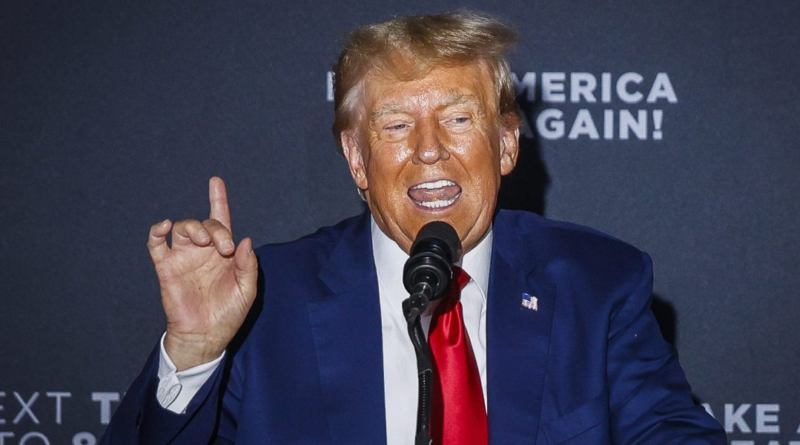Donald Trump is indicted in Georgia for trying to overturn election loss, adding to his long list of legal troubles
Donald Trump and 18 allies were indicted in Georgia on Monday, accused of scheming to illegally overturn his 2020 election loss in the state. It’s the fourth criminal case to be brought against the former president and the second this month to allege that he tried to subvert the results of the vote.
The indictment details dozens of acts by Trump and his allies to undo his defeat in the battleground state, including hectoring Georgia’s Republican secretary of state to find enough votes to keep him power, pestering officials with bogus claims of voter fraud and attempting to persuade Georgia lawmakers to ignore the will of voters and appoint a new slate of electoral college electors favorable to Trump.
“Trump and the other Defendants charged in this Indictment refused to accept that Trump lost, and they knowingly and willfully joined conspiracy to unlawfully change the outcome of the election in favor of Trump,” says the indictment issued Monday night by the office of Fulton County District Attorney Fani Willis.
Other defendants included former White House chief of staff Mark Meadows, Trump’s personal attorney Rudy Giuliani and a Trump administration Justice Department official, Jeffrey Clark, who advanced his efforts to undo his election loss in Georgia.
The indictment bookends a remarkable crush of criminal cases — four in five months, each in a different city — that would be daunting for anyone, never mind a defendant simultaneously running for president.
It comes just two weeks after the Justice Department special counsel charged him in a vast conspiracy to overturn the election, underscoring how prosecutors after lengthy investigations that followed the Jan. 6, 2021 riot at the U.S. Capitol have now, two-and-a-half years later, taken steps to hold Trump to account for an assault on the underpinnings of American democracy.
Though the indictment is centered on Trump’s efforts to subvert election results in just one state, its sprawling web of defendants stands apart from the more tightly-targeted case brought by special counsel Jack Smith, which so far only names Trump as a defendant. The Georgia case also stands out because, unlike the two federal prosecutions he faces, Trump would not have the opportunity to try to pardon himself if elected president.
As indictments mount, Trump — the leading Republican candidate for president in 2024 — often invokes his distinction as the only former president to face criminal charges. He is campaigning and fundraising around these themes, portraying himself as the victim of Democratic prosecutors out to get him.
The indictment charges Trump with making false statements and writings for a series of claims he made to Georgia Secretary of State Brad Raffensperger and other state election officials on Jan. 2, 2021, including that up to 300,000 ballots “were dropped mysteriously into the rolls” in the 2020 election, that more than 4,500 people voted who weren’t on registration lists and that a Fulton County election worker, Ruby Freeman, was a “professional vote scammer.”
_____
Associated Press writers Jeffrey Martin and Brynn Anderson in Atlanta; Jill Colvin and Michael R. Sisak in New York, Russ Bynum in Savannah, Alanna Durkin Richer in Boston and Farnoush Amiri in Washington contributed to this report.


